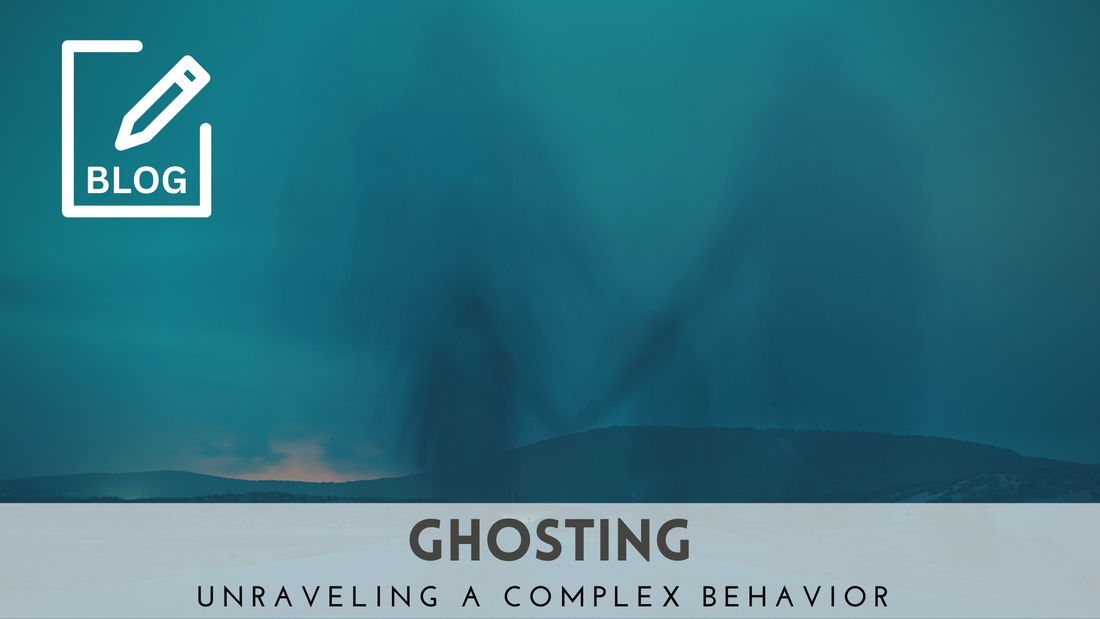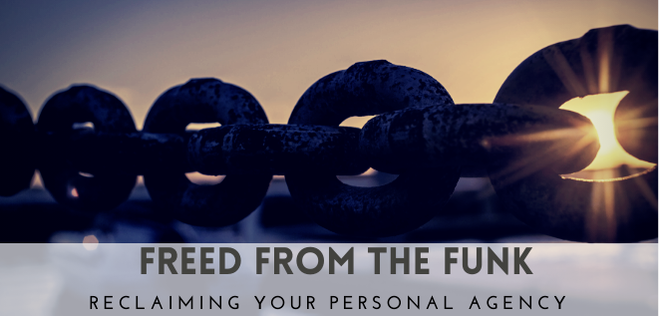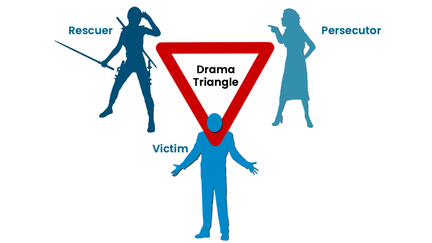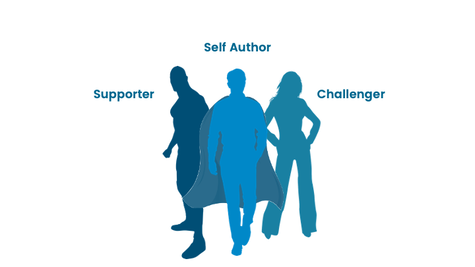|
This Blog was written to help you understand one of the most bewildering communication approaches - Ghosting. If you have had someone suddenly and intentionally cut off all communication with you without any explanation, justification, or warning after a period of consistent communication or even after a few interactions the following information may help you understand why they may have disappeared. It's not a 'magic' trick... there's so much more to this complex (and often hurtful) behavior. In the Blog I focus predominately on the ten common reasons why someone may have suddenly disappeared from your life. I look at it from the 'Ghosters' mindset. This doesn't mean the one who has been 'Ghosted' hasn't played a part in the situation. Contributor: Georgia Ellis In the work I do I am often helping my clients make sense of situations where all of a sudden communication with another person suddenly ceases without any real explanation. I too have experienced this personally and professionally (Mostly from decision makers in large organisations who engage my services, get a proposal and then… nothing but crickets), its bewildering, hurtful and often frustrating to the person who has been cut off and even if we have the mental complexity and emotional awareness to meet the demands of the situation, if the other person doesn’t then what we thought were meaningful relationships can suddenly slip away. “The most painful goodbyes are the ones that are left unsaid and never explained.” — Jonathan Harnisch, Freak Ghosting really is a bit of a head-scratcher in today's world and sadly it seems to be happening more and more. 👻 If you’ve experienced it firsthand and wondered why people choose to ghost others, let me help you with some of the psychology behind this complex (and often hurtful) behavior. Why Ghosting Happens Ghosting isn't just about a lack of communication skills on the part of the person doing the ghosting. It often stems from a mix of emotions, circumstances, emotional immaturity, and limited mental complexity (sometimes by both parties). 10 Reasons Why You're Being Ghosted 1. Lack of Maturity Immature individuals might prioritise their own needs, feelings and comfort over the impact of their actions on others. This can sometimes occur on both sides of the Ghosting situation. For the ‘Ghoster’ sudden disconnection can seem like an easy way to avoid discomfort without considering the emotional toll it can take on the other person and for the ‘Ghosted’ they may be ignorant of the impact they are having on others. 2. Limited Mental Complexity Some individuals struggle to fully grasp the impact of their actions on others due to limited interpersonal skills and inability to understand different perspectives, values and emotions. 3. Accountability Avoidance Someone lacking maturity or mental complexity might struggle with taking responsibility for their actions. Ghosting provides an escape from facing the consequences of their behavior or explaining themselves. 4. Conflict Avoidance Sometimes, the fear of confrontation or difficult conversations leads people to ghost. It's like hitting the "escape" button to avoid discomfort. 5. Uncertainty When feelings are murky or they're unsure about the relationship's direction, ghosting can seem like a way to buy time and figure things out. 6. Digital Disconnect In today's digital age, the emotional impact of ghosting might feel less real due to the impersonal nature of online communication. The growing need for instant replies may make you think you’ve been ghosted when someone has simply switched off. 7. Self-Protection Individuals with low self-esteem or a fear of rejection might ghost as a defense mechanism to shield themselves from potential hurt. 8. Emotional Immaturity Ghosting can arise from a lack of emotional maturity, making it challenging to navigate and communicate complex feelings and handle relationships with consideration. 9. Inexperience in Relationships Individuals who are less experienced in navigating relationships might resort to ghosting as a coping mechanism simply because they haven't yet learned healthier ways to handle your behaviour. (a curse of our digital world) 10. Priorities Clash Sometimes, juggling life's demands can become overwhelming, leading someone to unintentionally disconnect. A Call For Empathy While ghosting might seem like an easy way out, in the long run it’s an uneducated approach that pulls humanity backwards. If you use Ghosting as an approach, or you have been Ghosted, it's essential to reflect on the role you are playing in the situation and consider the emotions on the other side. In the communication masterclasses I run we highlight the need to bring more curiosity, courage and compassion to our interactions and remembering that we're all human (yes we make mistakes - #apologise) By dialing up these three approaches we can create stronger meaningful connections. “The only thing more unthinkable than leaving was staying; the only thing more impossible than staying was leaving. I didn’t want to destroy anything or anybody. I just wanted to slip quietly out the back door, without causing any fuss or consequences, and then not stop running until I reached Greenland.” ― Elizabeth Gilbert, Eat, Pray, Love Healthy Alternatives: Instead of ghosting, build your emotional intelligence and mental complexity by trying some of these healthier ways to manage relationships: 1. Open Communication: Share your thoughts and feelings to help others better understand whats going on and collaborate on a resolution. 2. Setting Boundaries: It's okay to take space, but communicate that you need time or your needs have changed instead of disappearing. Share whats important to you in the situation and why you may need some time. 3. Honesty: If the connection isn't right, be upfront and respectful about your feelings. 4. Empathy: Put yourself in the other person's shoes—how would you want to be treated? A Better Way: Ghosting might be common, but it doesn't have to be the norm.
Respectful communication, empathy, and consideration for others should ideally be part of healthy interpersonal interactions, regardless of one's level of maturity or mental complexity. I invite you join the movement that values communication, self awareness, understanding, and compassion. By treating others the way we'd like to be treated, we can foster healthier connections and build a more empathetic world. 💙 In March 2020, life started to feel a little funky, and not in the cool hip, bluesy kind of way, more of a holy almighty what has just happened to the world as I knew it kind of panic funk, and I’m certain I wasn’t the only one feeling this heavy uneasy feeling. Retrospect is a wonderful thing and six months on, I am grateful for all the knowledge and practices I had leading up to the occurrence of this global funk. I was able to navigate out of it, with a quick journey up to a higher perspective, noticing what was contributing to my personal experience of what was going on in the world, taking stock of what I could control, and then taking decisive action and maintaining practices that would allow me to weather this unrelenting onslaught of confusion. Taking decisive action and maintaining practices that would allow me to weather this unrelenting onslaught of confusion. There are many tools and ideas that I called on during this time, but the one I believe that served me the most was an idea I was introduced to in 2004 as part of a Leadership program I had attended. The idea was simple; I could either choose to approach life from one of two narratives, that of a person who has mastery over their life or one who has adopted a victim mentality. I recall having to list all the traits of a victim and a master. Upon reflection, I promptly decided that Mastering my life was where it was all a. So began the long and never-ending path to Mastery of Self, I began doing my best to model my life on being a person who took full responsibility for their outcomes, I began reflecting and adapting behaviours along the way. This was a game changer for me, I was letting go of allowing external forces such as relationships, the economy, managers or any situation outside of my control define who I was and how I felt, I was determined to dive into the depths of my being to see what I was really made of, oh and for what it’s worth, I am still doing that! Years later I would come across two other frameworks that expanded on these Victim / Master narratives. I was introduced to two new roles that keep us in a state of Funk and two additional roles that would allow me to show up as a better human to those I was sharing life with, move beyond the ongoing cycle of uncertainty and victim hood. Enter ‘The Drama Triangle’ (Stephen Karpmen) and ‘The Empowerment Dynamic’ (David Emerald). These ideas took me from looking at how I showed up for myself in life and introduced me to the roles I (and you) play in every human interaction and in every situation. I now had a detailed brief of the games we all unwittingly play together. The ongoing narratives we shift between that keeps us, and as we are experiencing on a global scale, the world in the funk of Drama and the roles we can choose to step into, to finally lift that funk. Roles that keep us in the Funk. The three roles in Karpman’s Drama Triangle are Victim, Rescuer & Persecutor.
Freeing yourself from the Funk, requires a shift from reacting in a situation to choosing to pause and consciously respond to life’s events. When you practice responding, you take yourself out of the situation and are better equipped to observe your behaviours. David Emerald ‘s book “The Empowerment Dynamic” provides alternatives to playing in the dysfunctional Drama Triangle. You can move from showing up as a Victim, Persecutor or Rescuer to interacting in a positive and empowering way. With curiosity and compassion, you can move from being a rescuer to a supporter, from a persecutor to a challenger and from being a Victim of Circumstances to Self-Authoring and creating your life. Freed From The Funk “In order to change an existing paradigm you do not struggle to try and change the problematic model. You create a new model and make the old one obsolete.” - Buckminster Fuller Using the wisdom of Buckminster Fuller you can switch out the Drama roles by creating new mental models that would look like this.
You will notice a clear difference between the roles, the roles trapped in drama keep everyone stagnant, angry, anxious and frustrated. While the empowering roles facilitate growth, and physical, mental and emotional well being. It takes moments to read about these roles, however it takes a lifetime of application to master the empowering behaviours that will free you from the funk. As you reflect on life right now, this perpetual funk that most find themselves in, ask yourself, am I keeping myself here, am I dancing around with my friends and family in Drama or are we empowering ourselves and those we care about to take responsibility and self-author our way to greater agency? I want to leave you with this quote by Jim Rohn as food for thought and to inspire you to no longer being the victim to what is happening in the world we share, but to choose to take responsibility and create circumstances that turn the Funk into Funky (in a bluesy kind of way) “You must take personal responsibility. You cannot change the circumstances, the seasons, or the wind, but you can change yourself. That is something you have charge of.” - Jim Rohn Let's dance!
Georgia The Life Reloaded and Future Ready Leadership programs run by Blue Chip Minds dive deep into these models and much more to help you to stop dabbling in Drama and begin to reclaim your personal agency. |
Authors
Our Contributors are a mix of passionate and switched on Humans ready to share their, career, business, well-being, leadership and performance insights with you so you can be the architect of your own extraordinary future! Archives
May 2024
Categories
All
|
Global professional development solutions for individuals and organisations.
Working with Individuals and organisations in;
Australia | Singapore | Hong Kong | United States | India | United Kingdom | Dubai | China | Poland
Malaysia | New Zealand | Japan | Belgium | Austria | South Africa | Brazil | Canada
Working with Individuals and organisations in;
Australia | Singapore | Hong Kong | United States | India | United Kingdom | Dubai | China | Poland
Malaysia | New Zealand | Japan | Belgium | Austria | South Africa | Brazil | Canada
|
We acknowledge the Traditional Custodians of the land on which we live, work, meet and play. This most often is the Wurundjeri people. We pay our respects to Elders past, present and emerging of the Kulin Nation. We extend gratitude and respect to Aboriginal and Torres Strait Islander peoples and global indigenous cultures for their incredible wisdom, resilience, deep connection to the natural environment and their deeply transformative spiritual practices.
We have so much more to learn from you. |
Copyright © All Rights Reserved BLUE CHIP MINDS 2013 - 2021





 RSS Feed
RSS Feed
